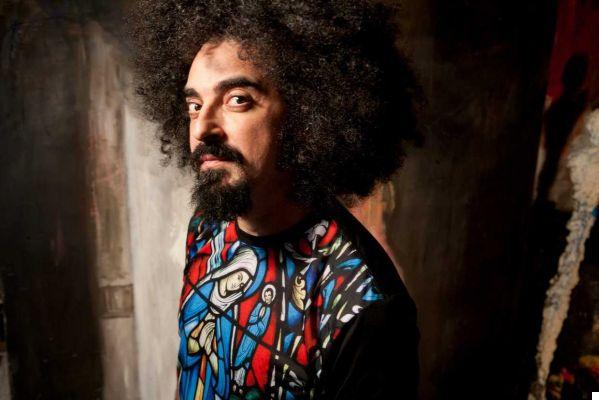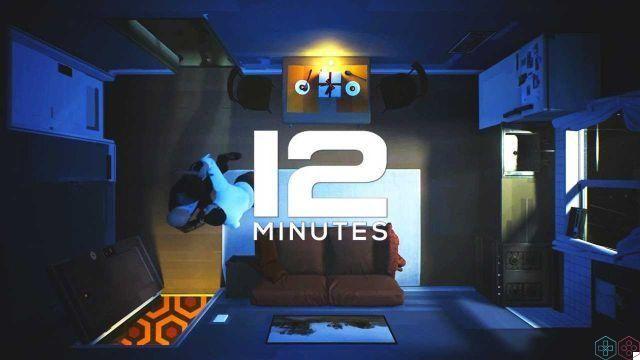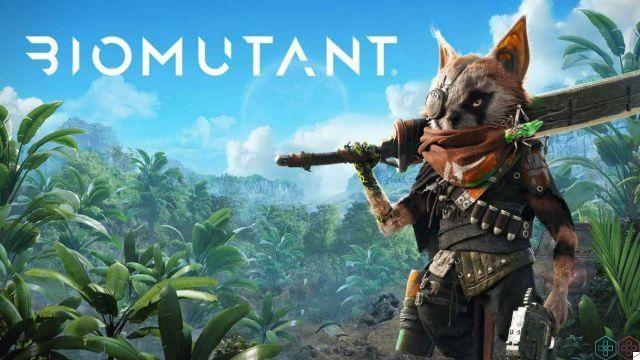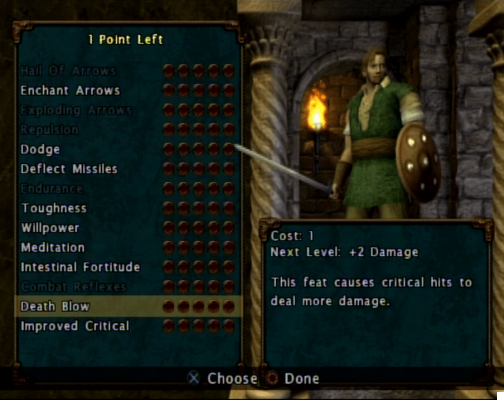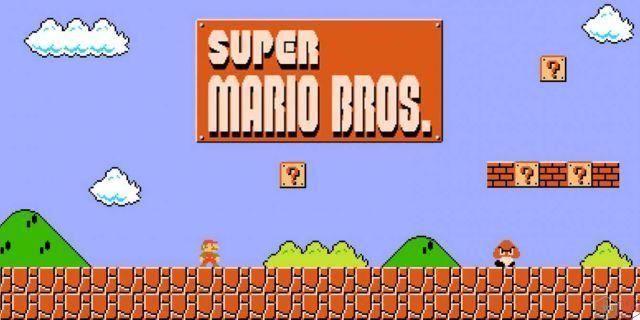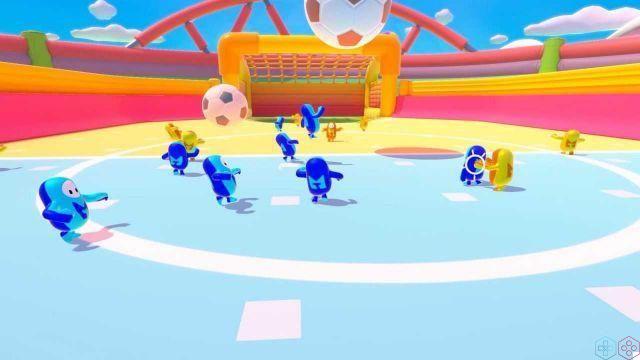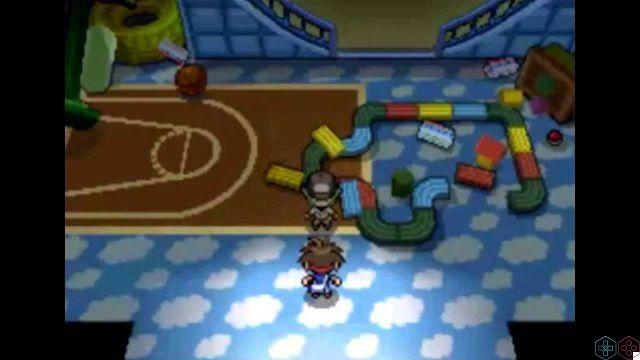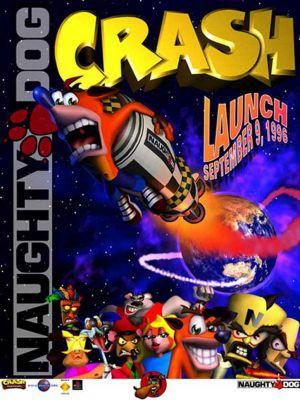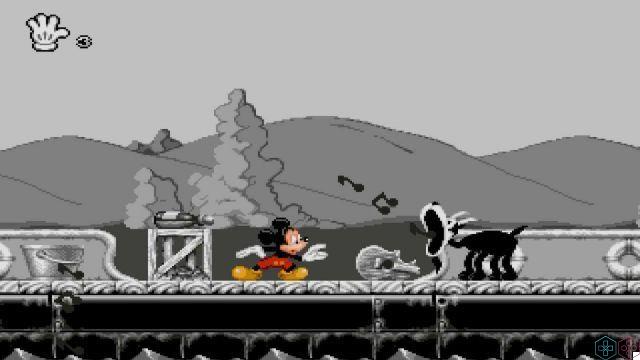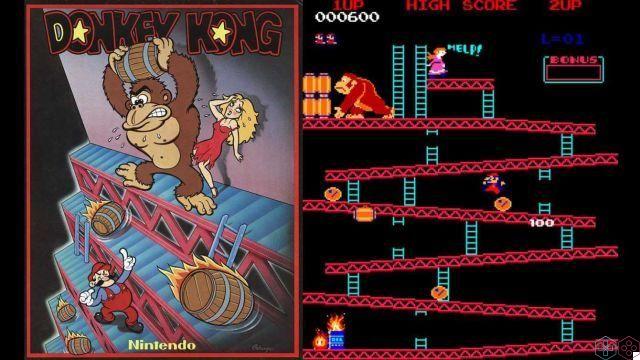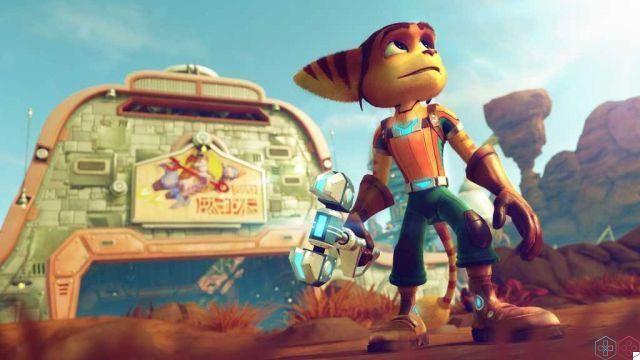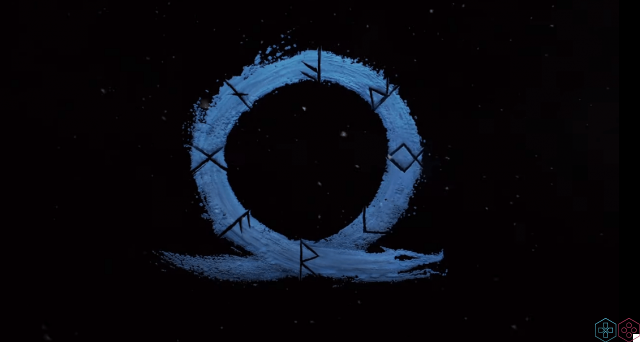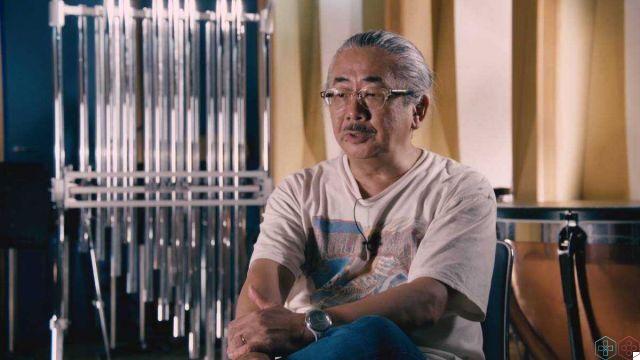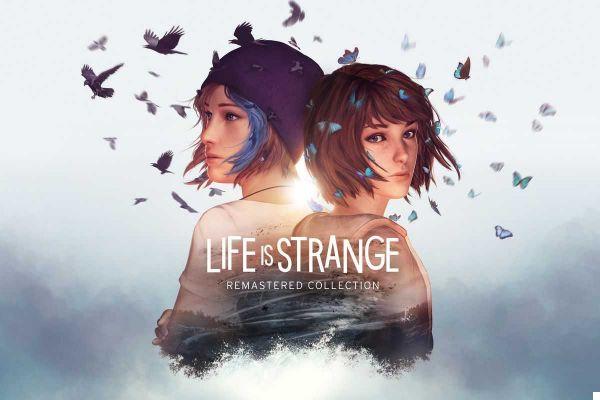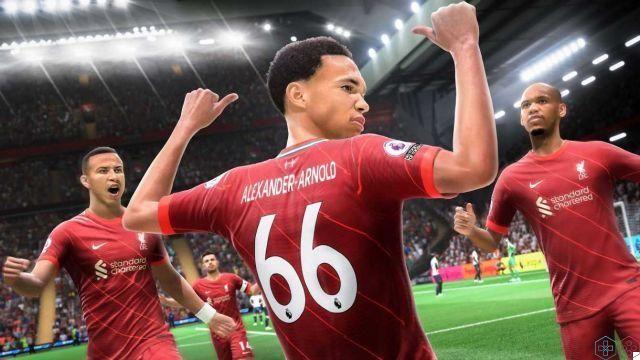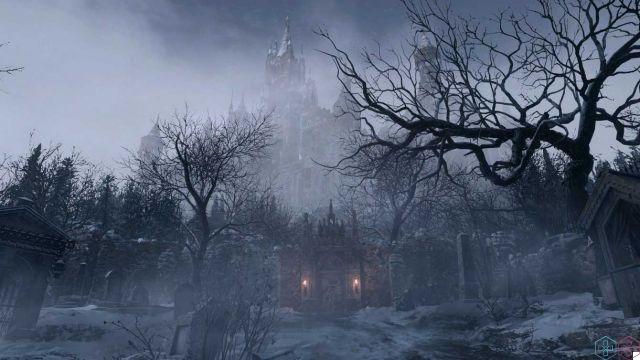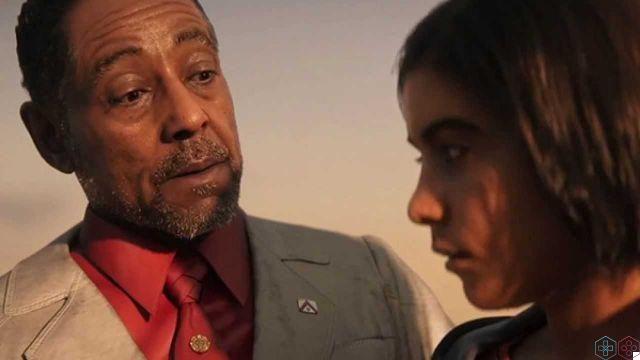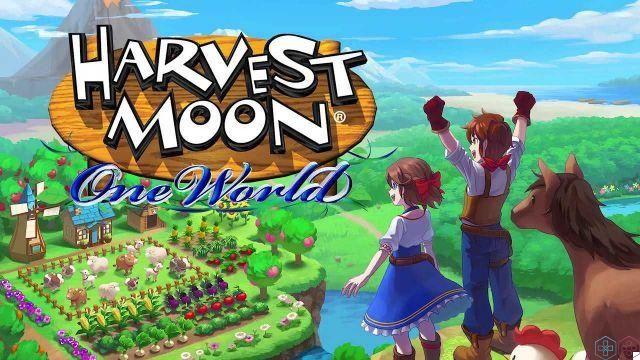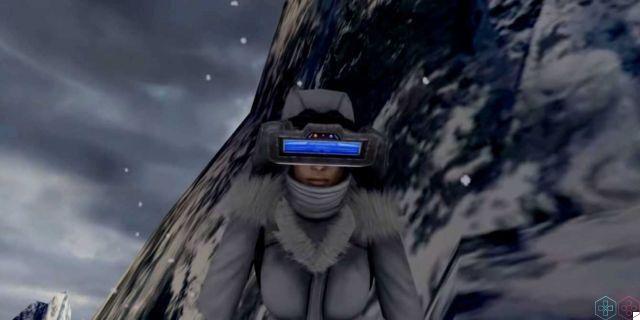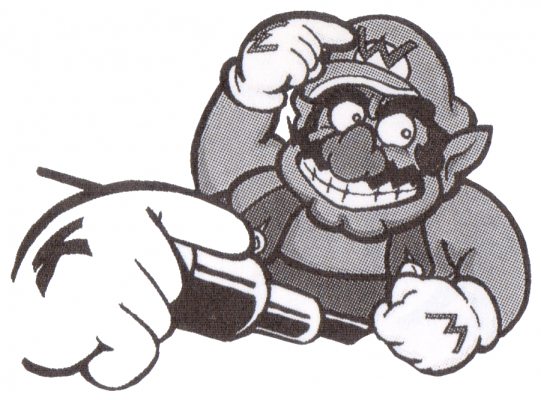From music to video games, Stewart Copeland's journey starts from the musical police to one of the most beloved characters of all time
This continuous ping pong between East and West for Music & Video Games, after a forced break due to the Nintendo Switch OLED model, leads us to another American composer: Stewart Copeland. This artist closes the circle opened by Caparezza, because Copeland's musical work is not born in the videogame context: most know him as a drummer of the Police. If the name still doesn't tell you anything, just know that it is the band that precedes the career of Sting solo. In addition to his console work, the author has also composed for films and TV series.
Obviously, we will not fail to place this artist in the same context as Akira Yamaoka, Yoko Shimomura, David Wise, Motoi Sakuraba, Josh Mancell, Koji Kondo, Grant Kirkhope and Nobuo Uematsu. Fans of the videogame franchise in question will already know where we are headed, but never as today will we have to take our time: if Rolling Stone magazine defined it in 2016 the XNUMXth best drummer of all time and if he entered the Rock and Roll Hall of Fame as a member of The Police in 2003 (and the Modern Drummer Hall of Fame in 2005, as well as the Classic Drummer Hall of Fame in 2013), this time there is a lot to say.
"Ever since you were a puff of smoke, we knew that ..."
Stewart Armstrong Copeland was born in Alexandria, Virginia on 16 July of 1952, in a family context unrelated to both music and, obviously, video games. In fact, the mother is the Scottish archaeologist Lorraine Adie, while the father is an agent (and founding member!) Of the CIA of Alabama, Miles Copeland Junior. The family moved temporarily to El Cairo when little Stewart was still a few months old, and later in Beirut where the boy attended the American Community School. Despite the hustle and bustle of relocating, however, musical talent didn't take long to emerge.
Already at twelve years, Copeland studied as a drummer and began playing for school dances within the first twelve months. He later moved to England, studying from 1967 to 1969 at Millfield boarding school in Somerset. Then, finally, the American west coast: in California he studied at the Alliant International University and the California University of Berkeley. The older brother, Miles Copeland III, founded the IRS Records company and is becoming manager by The Police, overseeing the artist's other musical projects. His other brother, the late Ian Copeland, also helped him.
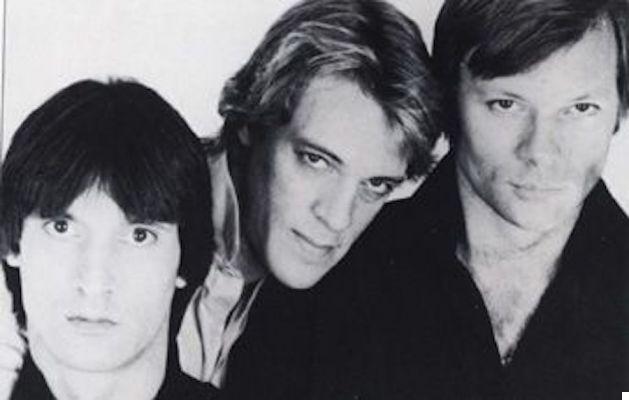
“My intervention seems to be needed” (musical) - Music & Video Games: Stewart Copeland
Returning to England, Stewart Copeland worked in the music industry but long before that of video games. Before the Police, in fact, he worked as a manager for the progressive rock band Curved Air, on the 1974 reunion tour. Over the next two years, he finally served as a drummer. The band did not have much success with the European tour, causing not a little frustration in the leader Darryl Way, known perfectionist. However, despite the climate of awe Copeland was working in, a spark broke out that led Curved Air to success.
And just as the band found success, they lost it just as quickly. The breakup happened so gradually that, according to the singer Sonja Kristina, the trade press described the band's absence as a gap year. Kristina and Way have pursued solo careers, and Copeland ... believe it or not, The Police group he founded it. Meanwhile, the artist has also maintained a relationship with Sonja Kristina formed on stage, culminating in a marriage in 1982. And now, finally, it's time to talk… not about consoles, but about the Police in the strict sense.
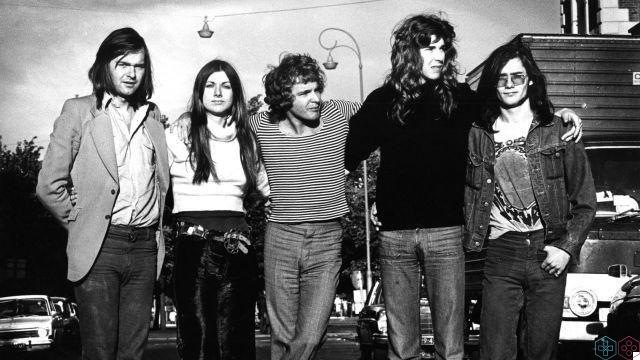
Metro Circuit - Music & Video Games: Stewart Copeland
That's right, video games are still a long way off, but Stewart Copeland's path in music led him to found The Police in 1977, along with singer and bassist Gordon Matthew Thomas Sumner (aka Sting) and guitarist Henry Padovani (soon replaced by Andy Summers). The group became one of the best of the late seventies and early eighties. Although Copeland was the youngest member of the band, the first songs were almost all his work, including the first single Fall Out and the song Nothing Achieving on the B side. Sting later composed more songs, but at the score level the imprint of Copeland was never missing.
The artist composed (and sang!) On Any Other Day, Does Everyone Stare, Contact, Bombs Away, Darkness and Miss Gradenko, then worked alongside Sting on Peanuts, Landlord, It's Alright for You and Re-Humanize Yourself. Under the pseudonym "Klark kent"(Later the title of an album of the same name), Copeland released several singles in the UK such as Don't Care in 1978. In the early XNUMXs, Copeland began composing for films: the soundtrack of Rusty the savage (directed by Francis Ford Coppola) earned him a 1983 Golden Globe nomination.
Norc Nexus - Music & Video Games: Stewart Copeland
We have not yet reached the time to talk about video games, but at the level of music we have reached a watershed for Stewart Copeland. The album The Rhythmatist in 1985 was the result of a pilgrimage to Africa, which is why many local sounds have found their way into the project. The author, also in this case, lent his voice to the song, but in the meantime "the main workplace" had entered in crisis: the Police attempted a meeting in 1986, but the project failed. At this point, Copeland has fully embarked on a career from composer.
The list of film which bear the artist's signature is long. We have Talk Radio, Wall Street, Riff-Raff: Better To Lose Than Find Them, Raining Stones, Survive The Game, Don't Look At Me: I Can't Hear You, Highlander II: The Return, A renewed love, Fresh, Filofax: A company worth a Honey, West Beirut, I'm David and Mission Hamburger. But we would like to mention one, before moving on to the list of TV series music by Copeland: Three friends, a wedding and a funeral from 1996. Look on YouTube for the song Bill is Dead, which accompanies the funeral elegy of the character in question. Don't you notice anything?
Wizard Peak - Music & Video Games: Stewart Copeland
Before we really get to the heart of video games, we would also like to focus on Stewart Copeland's music for the television. Un giustiziere a New York, Dead Like Me, Droids Adventures da Star Wars, the pilot episode of Babylon 5 and Nickelodeon's The Amanda Show. As with the last movie we mentioned, we would like to remind you to pay attention to the theme song of the TV series with Amanda Bynes as the protagonist. In that heated rhythm (from a drummer, what did you expect?) There is a clue that you can decipher with the title of this section of our special. You may have already understood, but when in doubt we close the curriculum.
We also have plays and ballets as sectors in which Copeland has dabbled, one above all the arrangement for the songs of Re Lear commissioned by the Seattle Symphony Orchestra. The artist also worked as a freelance drummer. Peter Gabriel wanted him for the song Red Rain on his 1986 album simply titled So. In the same year Copeland joined forces with Mike Rutherford, Tom Waits and Adam Ant. In 1989, Copeland formed Animal Logic with bassist Stanley Clark and singer-songwriter Deborah Holland, but after the initial success the band broke up. He finally dabbled in dubbing with a cameo as an American soldier in South Park - The Movie: Bigger, Longer & Whole.
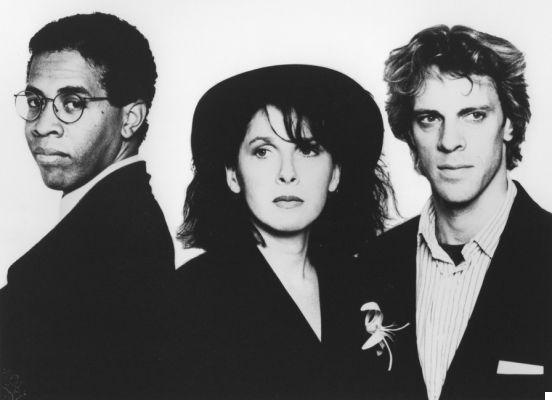
House of the Craftsman - Music & Video Games: Stewart Copeland
You may be wondering what video games Stewart Copeland has worked on, after talking about music that is completely foreign to the medium. The answer is given by the triptych Sony, Insomniac Games and Universal Interactive, which in 1998 gave birth to a Platformer to better rival Nintendo's age-restricted titles. We needed a title capable of replicating the freedom of movement of Super Mario 64, after Crash Bandicoot simply replicated in three dimensions (while succeeding) the linearity of the classic Mario seen on the Nintendo Entertainment System. Wings were needed to make Super Mario 64's ideas even more intuitive.
It needed, in other words, Spyro The Dragon. As happened for some authors we have already talked about, such as David Wise, the artist would have played at each level (with the help of tricks) to better understand the most suitable "feel". The result was something phenomenal, but not without some recycling around. For the music of Lofty Castle (Floating Castle in Spyro Reignited Trilogy), Copeland gave more rhythm to the song Bill is Dead, while with Wizard Peak (below; Vetta del Mago in Reignited) the author simply removed the voices from the theme song of the 'Amanda Show.
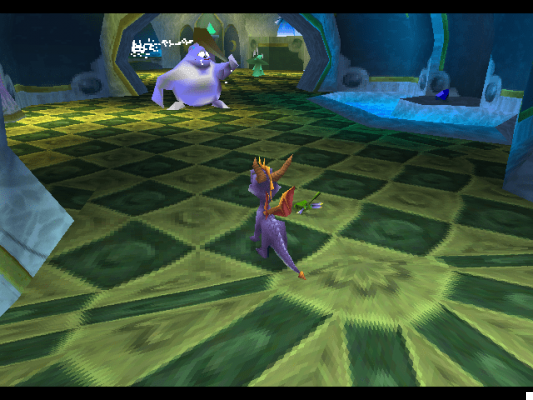
Glimmer - Music & Video Games: Stewart Copeland
Stewart Copeland stayed with the project to also compose the music for later video games in the saga. After Spyro 2: Ripto's Rage! (subtitled Gateway to Glimmer, "Portal to Glimmer", for the PS1 edition; the game retained the original title in the belated PSOne Classics re-release for PSP and Reignited Trilogy), Copeland has changed things for the third chapter, Spyro: Year of the Dragon. To make room for the rich Spanish dubbing and the infamous anti-piracy system in a game full of content, in fact, the European version has recycled and / or altered some songs.
The artist took into account how pleasant a song should be pleasant to listen to and entice the player to face the levels. Compared to Josh Mancell's sounds, Copeland preferred to avoid the loop of the songs in favor of a gradual lowering of the volume at the end of each track (Reignited permitting). To avoid Mancell's trade-offs, the different harmonies and lower tones have come through unscathed when playing on CDs. His love of art also saw him return for the disastrous fourth installment with hasty development, Enter the Dragonfly, and years later with the triumphal medley of the title screens (Tiger Train) for Spyro Reignited Trilogy.
Dark Passage - Music & Video Games: Stewart Copeland
Although Stewart Copeland's music for the series video games was never officially released, the limited edition of Spyro: Enter the Dragonfly came with an additional CD. The disc contained unused songs, further demonstrating the accelerated development. The song Jacques for the eponymous level and boss of the Dreamweave world of the first Spyro the Dragon he made an appearance, without any changes outside the title (Rain ), in the collection The Stewart Copeland Anthology.
During this time, Copeland composed the only other video game soundtrack outside of Spyro, that of Alone in the Dark: The New Nightmare (below). In 2000, in collaboration with Les Claypool (Primus) and Trey Anastasio (Phish) he created the band Oysterhead, to then compose the soundtrack of the film Sunset Strip at the request of director Adam Collis. And what about the little dragon? Copeland's influence is evident on the soundtrack of the Digital Eclipse trilogy for Game Boy Advance (Robert Baffy and Ed Cosico), but if you're curious the YouTube channel Cope Land (with space) rearranged some of those songs with instruments from the original games.
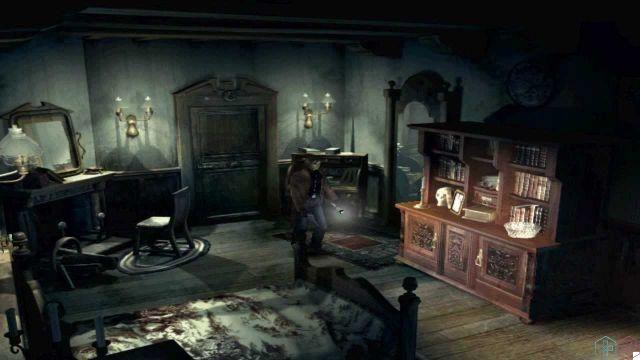
Villa Solare - Music & Video Games: Stewart Copeland
In 2002, after flirting with video games, Stewart Copeland's music returned to the stage. On the occasion of a new album (with tour attached), the members of Doors Ray Manzarek and Robby Krieger signed him as a drummer. However, following a health problem, Copeland had to back down at the last minute and it ended up in court. In 2005, the artist brought his art to none other than Spain, starting from the Orchestralli album which contains chamber music pieces composed during a brief visit to our boot in 2002. Later, the musician started another collaboration project.
With the avant-garde guitarist (for an avant-garde idea, think of the delirious Revolution 9 of the Beatles' white album) David Fiuczynski, the multi-instrumentalist colleague Vittorio Cosma, the singer Raiz and the Romanissimo Max Gazzé as a bass player, Copeland founded Gizmo. The band made their American debut on September 16, 2006 at the Modern Drummer drummer festival. Additionally, in January 2006, Copeland released his documentary about the Police entitled Everyone Stares: The Police Inside Out (from the title of the song you heard earlier) at the Sundance independent film festival. In February and March, he was one of the judges for Just the Two of Us on the BBC (a talent show still unknown to us).
“Thanks for setting me free” - Music & Video Games: Stewart Copeland
At the 2007 Grammy Awards, Stewart Copeland, Andy Summers and Sting played together for the first time in years, performing with Roxanne as the outspoken The Police. This marked the band's first public appearance since 1986 (outside of an impromptu concert at Sting's wedding in 1992 and the introduction to the Rock and Roll Hall of Fame in 2003). The next day, the band announced the meeting tour of 28 May 2007, to celebrate the thirtieth anniversary of the Police. On this occasion, Copeland released the comprehensive compilation of Rain that we mentioned earlier.
Also in 2007, the French government awarded Copeland, Summers and Sting the title of knights to the order of arts and letters, also received in the past by Shigeru Miyamoto and Michel Ancel. The group performed 151 times, culminating in their last concert in August 2008 at New York's Madison Square Garden. Since then, the dragon drummer has been commissioned by RIM to give a sort of "soundtrack" for the smartphone BlackBerry Bold 9000. The percussion-rich theme he composed has resulted in six different ringtones, including an alarm clock pre-installed in the phone.
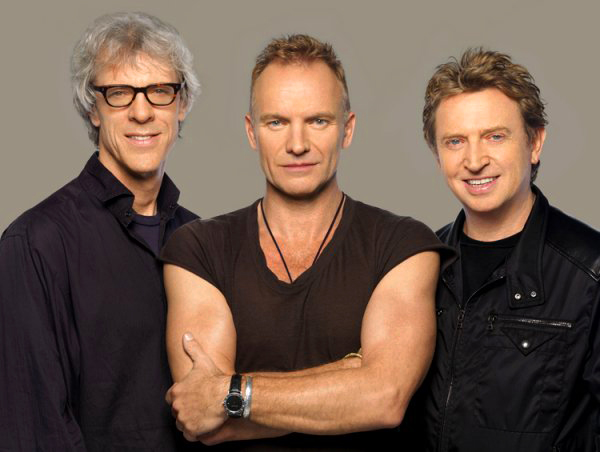
Metropolis - Music & Video Games: Stewart Copeland
In March 2008, the author performed his orchestral composition Celeste at the event An Evening with Stewart Copeland, as part of the Savannah Music Festival. Among the musicians there was also the classical violinist Daniel Hope. Everyone Stares: The Police Inside Out was also screened at the event with a quick question-and-answer session with the audience. The same year the Dallas Symphony Orchestra proposed him to compose a piece full of Indonesian percussion. The resultant Gamelan D'Drum it was played in Dallas on February 5, 2012 and at the Royal Academy of Music in London the following July.
At the SummerFest on August 21, 2009, Copeland revealed the songs Retail Therapy, Kaya, Celeste and Gene Pool. On the occasion of the theatrical adaptation of Ben-Hur on 17 September he composed the soundtrack. That same month he released his memoirs, Strange Things Happen: A Life with The Police, Polo, and Pygmies. The book tells good or bad all the events that we have summarized so far. A month later he was a guest on BBC Radio 3's radio show Private Passions. On 24 May 2011 he officially opened his Youtube channel.
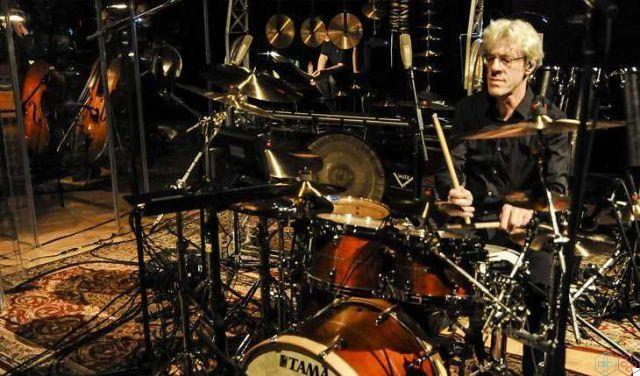
Fracture Hills - Music & Video Games: Stewart Copeland
On his channel, Stewart Copeland uploaded all the music played in collaboration with other artists. On 24 August 2011 he played as a solo drummer on the Late Show with David Letterman (broadcast by us on Rai 5). He also made an appearance in the January 10, 2012 episode of Business in the Dark (DMAX) to buy Turkish cymbals for forty dollars. In July he went on a European tour with former bandmate at Animal Logic, Stanley Clarke. In May 2013 he performed with Long Beach Opera a… well, an opera inspired by The revealing heart by Edgar Allan Poe.
Let's briefly summarize the latest events starting from the formation of the supergroup Gizmodrome with Alan Belew, Vittorio Cosma and Mark King (no, no Max Gazzè this time). For the occasion, a self-titled album was released. On June 25, 2019, the New York Time added Copeland's work among the enormous material lost in the2008 fire at Universal Studios. We are almost at the end of this long musical journey: it's time to delve a little more into the personal sphere.
Midnight Mountain - Music & Video Games: Stewart Copeland
As we mentioned earlier, Stewart Copeland has been in a relationship with Sonja Kristina of Curved Air since 1974. The resulting marriage lasted from 1982 to 1991. He adopted her son, Sven, from a previous relationship, and the two had a in turn the brothers Jordan and Sott. In 1981, she had her first child Patrick by Marina Guinness, daughter of Irish author Desmond Guinness. Currently, he lives in Los Angeles with his second wife, Fiona Dent, with whom he had three children: Eve, Dylan and Celeste.
Let's briefly close the parenthesis on gossip by mentioning the hobby by Copeland. The artist delights in his free time playing polo, as an amateur director, skating and cycling along the Santa Monica coast in California. He is also still active on the YouTube channel, where he uploads various training sessions with other musicians in his studio (below), dubbed the Sacred Grove ("the sacred grove").
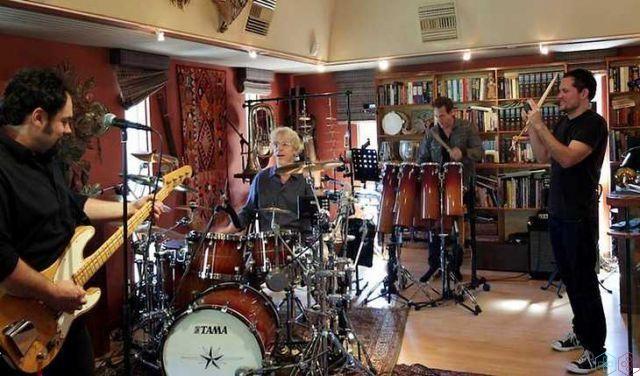
Treasure of Nasty - Music & Video Games: Stewart Copeland
Copeland grew up listening to a combination of Lebanese music (we assume they are more or less the same influences by Mika, ed), rock and roll, jazz and reggae, but carefully choosing what he needed from each style rather than blindly imitating them. In the XNUMXs, when many musicians were looking for a sound other than bigger drums, he discovered octoban. Also called "tube drums" and invented by the manufacturer Tama Drums in 1978, octobans are characterized by their cylindrical shape. It has also implemented gods cimbali similar to those of one of his childhood toys.
How long left handed, Copeland plays right-handed drums, placing the cymbals mostly on the left. According to an interview with Modern Drummer, Copeland quoted Mitch Mitchell from Jimi Hendrix Experience as one of the major influences. According to the artist, whenever he had a melody in mind even as a child he wondered how Mitchell would play it. In addition, the composer also refers to Sandy Nelson e Ginger Baker, but because of what he calls a "forced listening" of Buddy Rich he has become "allergic to jazz" over time.
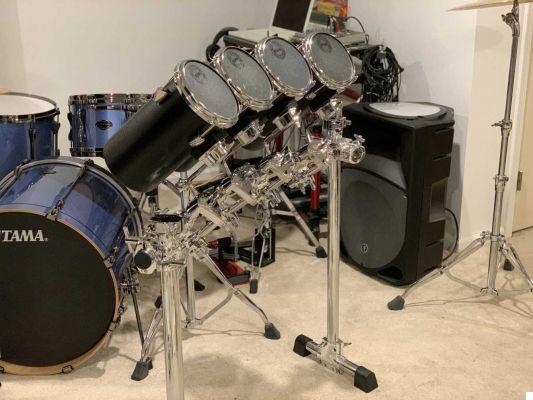
Bay of Norc
Music experts have noted how much its emphasis on groove (a sequence repeated by a drummer to keep the rhythm) does not make up the backbone of a piece, acting instead as a contour. Copeland says his ability to keep the tempo of a rock song for two minutes is something "very few modern drummers can do." On the videogame front, probably one of his most ambitious songs is that of Bay of Norc from the first Spyro. According to the analysis of the rhythm by the Let's Player of Romagna May Summers, the rhythm "begins in a tight 3/4", after which "the drums enter in 2/4" and the timpani (on which he was one of the first drummers to implement the chorus) start in “in 6/8”, contributing to a whirlwind of different rhythms definable only as a work of art.
Now it's up to you to tell us yours: what do you think of this artist? Let us know below, and as always don't forget to stay on techigames for all the most important news for gamers and more. For your purely gaming needs, you can instead find the best discounts in digital format on Instant Gaming.




